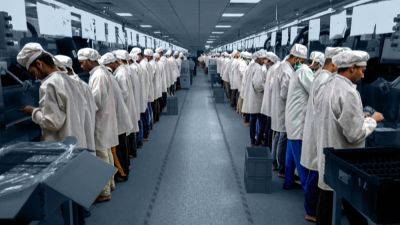Slide Over, Auntie: Young Chinese Find Tasty Meals in Senior Canteens
Inside a canteen for seniors in downtown Shanghai, a worker brandishing a sponge inched closer to Maggie Xu, 29, as she was finishing her rice and garlic-and-oil-soaked broccoli. Ms. Xu ignored her.
“If you come at 12 o’clock, the aunties will give you less food,” Ms. Xu said, speaking softly. After 1:30 p.m., they give away soup. They also start to hover — like the auntie with the sponge — hurrying laggards out the door.
Ms. Xu is familiar with the rhythms of the Tongxinhui Community Canteen because she eats there every day to save money. She has a good job as an accountant at a foreign firm, but she can’t shake a creeping sense of unease about her future.
“Only when you save money will you feel safe,” she said.
In these tough economic times in China, many young people are jobless, but they aren’t the only anxious ones. A devastating crash in the value of real estate, where most household wealth is tied up, has heightened a feeling among young working professionals like Ms. Xu that their situation is precarious, too.
In Shanghai, some people are finding relief at subsidized community centers that once served mostly seniors but are now also drawing younger crowds. The food is affordable and plentiful. The plates on offer, sometimes as cheap as $1.40, are crammed with local specialties like shredded eel with hot oil, steamed pork ribs or red braised pork belly.
Similar to soup kitchens, the canteens are privately run but subsidized by China’s ruling Communist Party and cater to older residents who are too frail to cook or are homebound, offering discounted meals and delivery services.







